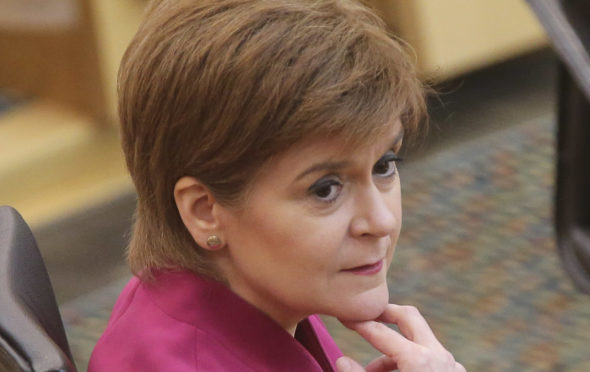
We are, of course, biased, but the interest generated by our story a week ago revealing positive Covid patients were knowingly sent into care homes seemed entirely justified.
Shock and a simple sadness are the natural responses to the revelation that our hospitals sent dozens of patients into homes after testing positive, a bed clearance policy compared to putting a match to tinder in homes where almost 2,000 residents were to die of the virus.
Most Scots – at least, those not determined to turn serious questions about the death of 2,000 vulnerable Scots into a Yes/No rammy – simply wanted to know why such an apparently reckless policy was pursued despite the seemingly obvious risks?
They would have been disappointed. The First Minister’s by now boiler-plated apology, that is no apology at all, might be sincere but does her little credit. You know the one: “Of course, we’ve made mistakes. And if we’ve made mistakes, we’re sorry.”
The shortest word carries most weight in that sentence because the words of contrition go no further. Asked what specifically those mistakes might have been – moving positive patients into care homes, for example? – and what might be done to prevent them being repeated, Nicola Sturgeon moves on, and up to the high ground. These were clinical decisions for doctors, she will say, not for ministers.
It’s an old trick that might get her through First Minster’s Questions unscathed (again), but it does not answer the question, does not learn any lessons and will not save lives when winter bites in a few months’ time.
The letter from Health Secretary Jeane Freeman we publish today reveals the pressure put on health boards and social workers to clear beds. Yes, they might have been clinical decisions but Ms Freeman might as well have been peering over the shoulder of doctors, cracking her knuckles, as they signed the discharge papers.
And, yes, most Scots can remember the genuine fears for our NHS in those strange, unsettling weeks as we saw patients being treated in Italian field hospitals.
And, yes, most of us can understand why moving patients out of hospital was seen as a good thing to clear beds but also for their own protection and comfort. And, yes, Scotland was not the only country where care homes were failed in the onslaught – far from it – but we don’t live in other countries.
There have been no answers or word of any kind of inquiry. The continuing refusal of our biggest health boards to say how many positive patients were discharged and an apparent rush by others to revise their figures does not reek of an open accounting.
Of course, our leaders made mistakes in those harrowing, hurtling weeks of spring. Most, although possibly not all, will be forgiven if not forgotten but what was unprecedented then, is no longer.
If ministers refuse to properly acknowledge, never mind learn from, those mistakes, they will deserve no such forgiveness the next time.

Enjoy the convenience of having The Sunday Post delivered as a digital ePaper straight to your smartphone, tablet or computer.
Subscribe for only £5.49 a month and enjoy all the benefits of the printed paper as a digital replica.
Subscribe